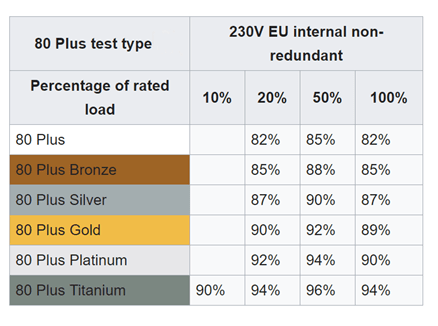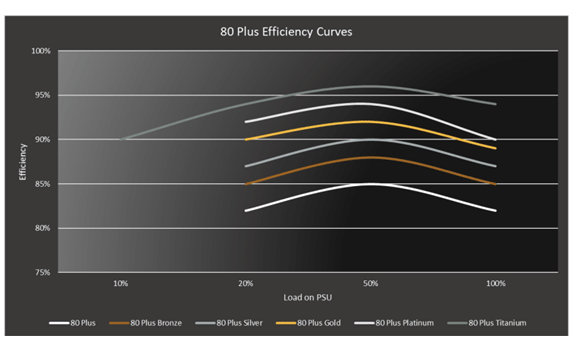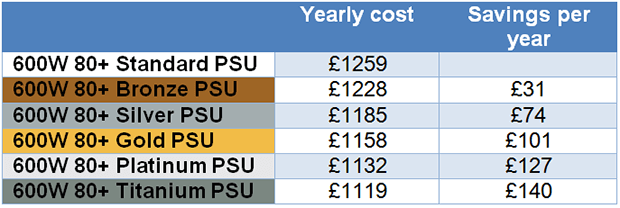
Why Should the Efficiency of Your Industrial Computer’s PSU Matter to You?
Why Should the Efficiency of Your Industrial Computer’s PSU Matter to You?
No PSUs are the same, that’s a given. So, as well as evaluating the power output when choosing the PSU for your industrial computer equipment, serious consideration should be given to the efficiency rating.
There is an industry standard which many PSU manufacturer’s adhere called 80 Plus. This was initially created back in 2004 as a means to promote efficient energy use within computer hardware. It is also a voluntary certification programme. Back in 2005, when the first 80 Plus certified PSU was launched, the efficiency target was greater than 80% (hence the name 80 Plus).
Take a PSU offering an 80% efficiency rating and the power being delivered to the computer equipment being 400W. The actual power taken from the AC input to the PSU would be 480W. So, the extra 80W is effectively lost in heat due to the inefficiency of the AC to DC power converters in the PSU.
Over the years since the 80 Plus standard was created, more and more efficiency bands have been created: Bronze, Silver, Gold, Platinum and Titanium; with Titanium being the most efficient as of today.

The efficiency is measured at different electrical loads (20%, 50% and 100%), and needs to be above a certain threshold at each of these loads to achieve the relevant 80 Plus rating. The Titanium rating introduced a new load requirement of 10%. The table below shows the limits of efficiency for each rating.

Plotting these onto a graph gives a good visual representation of how these efficiency curves change over the various loads a PSU may be under.

Looking back to the original question, what does the efficiency of your industrial computer’s PSU mean to you? Another way to ask that question would be, how much money do you want to save on your energy bill each year? That may make you investigate your computer’s PSU efficiency rating a little more closely! To understand better what these savings could be, let’s look at an example.
Given a standard unit cost of electricity of 14.37p per kWh and a computer requiring 300W of power 24 hours a day, 7 days a week, the following table is a rough guide to costs and savings for each efficiency band compared to the minimum standard.

This is a fairly modest example. Add a GPU or two to your system with a more powerful CPU, more memory and storage devices, and the savings are much greater.

As you can see, the yearly savings can really mount up per computer. Of course, you will pay more for the upfront cost of a Titanium PSU versus a Standard 80+ PSU. However, depending on power usage of your solution, this increased cost could be recouped within as little as 6 to 12 months. If you have large estates of industrial or specialist computers operating 24/7, then a high efficiency model makes a lot of sense for your application.
If you’d like to see what an efficient PSU can do in a robust, customisable and reliable industrial computer, check out our IC range here.
Or, if you’re short on time, why not watch our specialist computing capabilities video.

